Certificate, act, copy of an act, attestation… Who would have thought that attesting to a person’s birth could be so complicated!
Interested in learning more about the differences between these official documents?
Please read on!
What is a birth certificate?
For legal purposes in Quebec, a birth certificate is an official document stating that a new citizen has come into the world.
It is issued by the government, and provides information as to the identity of the person, that is to say the date and place of their birth, their family name and given names, their sex, their parents’ names, etc.
The Province of Quebec can also issue an abbreviated version in a smaller format that omits the parents’ family names and given names.
Such documents are generally issued in the language spoken by both of the baby’s parents.
Every country has its own rules on this subject.
In Quebec, the choice of language is made by the parents, if one is Anglophone and the other is Francophone.
The Director of Civil Status manages birth records for the Province of Quebec.
Parents have 30 days following the birth of their child to forward a paper or electronic declaration of birth to the Director.
What is the certificate used for?
Obviously, this document attests to a person’s birth, but it also establishes their citizenship, age and place of birth.
In Canada, as in many other countries, institutional bodies generally require that a copy of this document be submitted, notably in support of the initial application for a:
- Health insurance card
- Social insurance number
- Passport
- Driver’s licence
When such an application is filed with an entity that operates in a foreign language, the applicant has to have his or her birth certificate translated by a certified or sworn translator so that the governing body can process the application.
What is a copy of an act of birth?
A copy of an act, sometimes wrongly referred to as “the act of birth,” is a civil status document that gives the happy event an official character.
Like the birth certificate, it establishes the basic identity of the newborn: family name and given names, sex, date and place of birth, and the family names and given names of the parents.
On request, the Director of Civil Status will provide a copy of an act bearing its number and date of issue.
Unlike a birth certificate, a copy of an act can also provide details of other civil status events.
Less common is the attestation, a letter produced and sealed by the Director of Civil Status that confirms the absence or presence in the register of civil status of a citizen’s act of birth.
Note that an attestation in no way replaces a copy of an act or a certificate.
What is the copy of an act used for?
In addition to attesting to a person’s birth and identity, the copy of an act can be used in support of an application for a health insurance card, a passport or a driver’s licence, for example.
Like the certificate, the copy of an act is issued in the language in which the birth was recorded in the register of civil status.
Some entities require the copy of an act as proof of birth, while others prefer the certificate or the attestation.
The client is advised to consult the organization to which the document is to be submitted in order to comply with their requirements.
Note that only a copy of an act or a certificate can be used as proof of birth to a third party.
Who can produce an official translation?
An individual cannot translate their own certificate or copy of an act of birth or have it translated by a non-professional, since the translation has to have official status.
In fact, anyone who wishes to obtain an official and certified translation to be submitted to a Quebec, Canadian or international entity must retain the services of a certified translator.
To be considered a true translation of the original document, the translation has to be performed by a certified translator, who then affixes their corporate seal.
In Quebec, the translation profession is regulated by the Ordre des traducteurs, terminologues et interprètes agréés du Québec (OTTIAQ).
In short, only a certified translator is authorized to produce a translation of a birth certificate to be used for official and administrative purposes.
How do I request a translation?
Send us your documentation by mail, if the nature of the request so requires, or by email to the following address: quote@invisibletranslation.com.
If you choose to send it through email, scan all documents in PDF format and set the resolution to at least 300 dots per inch (dpi).
Please include your contact information and specify the required registered mail delivery date.
It generally requires approximately one week for completion of the page layout, translation and preparation of the related documents.
A staff member will call you promptly upon receipt of your request to discuss the details.
Contact us today for answers to all your questions.
